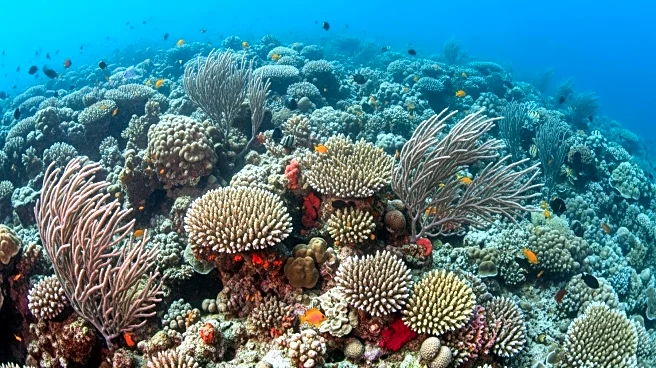What's Happening?
A new scientific report has confirmed that tropical coral reefs have become the first ecosystem to irreversibly cross a planetary tipping point. Since 2023, over 80 percent of these reefs have been degraded
or destroyed due to mass bleaching events triggered by rising ocean temperatures. Despite decades of conservation efforts, scientists now believe the window to save most reefs has closed. The report highlights that even if global warming were halted today, over 99 percent of tropical coral systems are unlikely to recover. This collapse marks a visible fracture in Earth's climate system, with reefs near the Great Barrier, the Maldives, and the Coral Triangle suffering back-to-back thermal assaults.
Why It's Important?
Coral reefs play a crucial role in protecting coastal cities from storms, supporting fisheries that feed over a billion people, and fueling tourism economies. Their collapse signals a broader environmental crisis, potentially triggering a chain of interconnected climate thresholds that could reshape the planet. The report identifies other Earth systems nearing critical thresholds, including polar ice sheets and ocean currents. The loss of coral reefs not only impacts biodiversity but also threatens human lives and economies dependent on these ecosystems.
What's Next?
The report urges governments to factor tipping point risks into climate policy, accelerating carbon removal strategies and investing in ecosystem resilience. The upcoming COP30 summit in Brazil will likely address these urgent issues, as the Amazon rainforest faces its own irreversible shift. Scientists emphasize the need for global coordination to pivot away from fossil fuels quickly enough to avoid tipping more systems.
Beyond the Headlines
The collapse of coral reefs highlights the ethical and cultural dimensions of climate change, as communities reliant on these ecosystems face existential threats. The report also notes positive tipping points in clean energy adoption, offering a glimmer of hope for mitigating further environmental damage.









